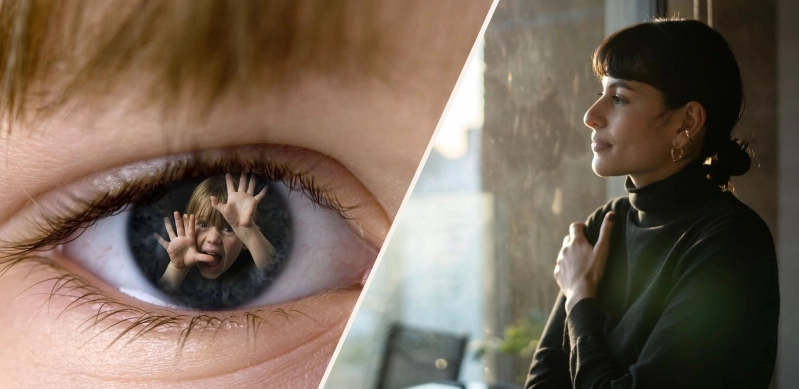Introduction
Childhood experiences shape the foundation of mental and emotional well-being. When children face traumatic events such as abuse, neglect, or loss, the effects often extend into adulthood. Childhood trauma doesn’t just fade with time—it can influence brain development, emotional regulation, relationships, and vulnerability to mental health conditions later in life.
What is Childhood Trauma?
Childhood trauma refers to distressing events that overwhelm a child’s ability to cope. Common examples include:
- Physical, emotional, or sexual abuse
- Neglect of basic needs
- Exposure to domestic violence
- Losing a parent through death, separation, or abandonment
- Bullying or community violence
How Trauma Affects the Developing Brain
- Stress Response: Constant exposure to trauma keeps the body in “fight-or-flight” mode, raising cortisol levels.
- Brain Changes: Trauma can alter brain structures responsible for memory, learning, and emotional control.
- Attachment Issues: Unstable early relationships affect trust and emotional bonds in adulthood.
Long-Term Mental Health Effects
1. Anxiety and Depression
- Trauma survivors are at higher risk for chronic sadness and worry.
- Feelings of helplessness often resurface in stressful situations.
2. Post-Traumatic Stress Disorder (PTSD)
- Flashbacks, nightmares, and hypervigilance may persist.
- Everyday triggers can reignite traumatic memories.
3. Substance Abuse
- Many adults turn to alcohol or drugs as coping mechanisms.
4. Difficulty with Relationships
- Struggles with trust, fear of abandonment, or codependency.
- Problems maintaining healthy boundaries.
5. Low Self-Esteem
- Childhood neglect or criticism often leads to self-doubt.
- Survivors may struggle with feelings of worthlessness.
Healing and Treatment Options
1. Therapy
- Trauma-focused CBT: Helps reframe negative thought patterns.
- EMDR (Eye Movement Desensitization and Reprocessing): Effective for processing traumatic memories.
2. Building Healthy Relationships
- Supportive friends, mentors, or partners can help rebuild trust.
3. Mind-Body Approaches
- Yoga, mindfulness, and meditation regulate stress responses.
4. Medication
- Antidepressants or anti-anxiety medications may help manage symptoms.
5. Support Groups
- Sharing experiences with others provides validation and community.
The Importance of Early Intervention
Children who receive support after trauma are less likely to face severe mental health issues later. Schools, caregivers, and communities play a vital role in providing safe environments and emotional support.
Conclusion
Childhood trauma leaves lasting imprints on adult mental health, but healing is possible. With therapy, supportive relationships, and self-care, individuals can break free from the shadow of early pain and build healthier, more resilient futures.
FAQs
Q1: Can childhood trauma be fully healed?
While its impact may never disappear entirely, many people recover and live fulfilling lives through therapy and support.
Q2: Why do some people cope better with childhood trauma than others?
Resilience depends on genetics, personality, and the presence of supportive adults.
Q3: Does every child exposed to trauma develop mental health problems?
Not always—protective factors like strong relationships and early help reduce long-term effects.
Q4: What is complex trauma?
It refers to repeated, prolonged trauma, often within caregiving relationships, leading to deeper psychological wounds.
Q5: Can unresolved childhood trauma affect physical health?
Yes, trauma is linked to higher risks of heart disease, diabetes, and chronic pain.
